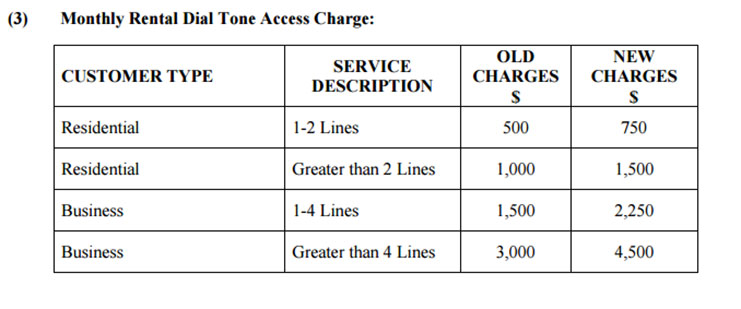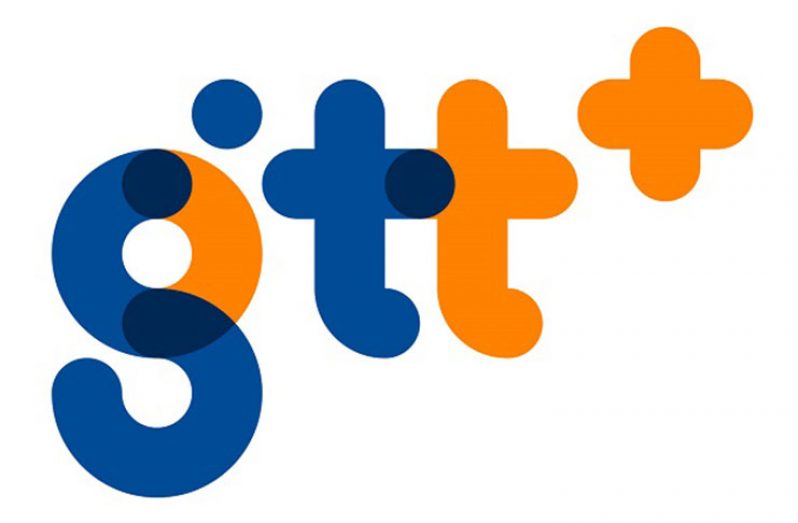— GTT gets temporary permission to do so from PUC
THE Guyana Telephone and Telegraph Company (GTT) has received temporary permission from the Public Utilities Commission (PUC) to increase its landline rates from August 1, 2017, while new rates to all international destinations will also be effective then.
In a statement to the media on Thursday, the PUC said the rates will be temporary subject to GTT completing its end-to-end provisioning of the FTTX Phase 1 in La Grange, and beginning the commercial launch of services in the areas which they have identified.
Additionally, the company also has to submit quarterly detailed appraisal of progress showing the number of new services rolled out, inclusive of rural areas.

“This should not be less than 1000 lines per quarter; which may include up to 25 per cent re-issue lines,” the PUC stated.
Highlighting the tardiness of the telephone company in responding to fault reporting, the PUC also requested a quarterly report from the date the rates take effect showing details of the average time taken to resolve consumers’ complaints – residential and business.
GTT is also tasked with determining a daily compensatory credit for consumers which will be contingent on its failure to comply.

“We wish to reiterate that our order will be for temporary rates, and we will monitor the services continuously to ensure that the company improves the quality of service offered to the public. The company must demonstrate that there is an urgent and genuine effort to provide services to outstanding applicants. Such installation must be executed in an orderly and systematic manner,” the PUC stated.
GTT had in July 2014, submitted an application for a variation of rates, to certain increases in the landline services, a reduction in outbound rates, and a change of methodology in the manner in which some services are billed.

The application was based essentially on a claim that they were not earning a 15 per cent rate of return on capital dedicated to public use.
After a hearing, the PUC dismissed the application and refused to order any increases. However, GTT appealed that order and the matter was referred to the Court of Appeal for final adjudication.
Subsequently, GTT filed an application for the PUC to review the order and withdrew the appeal. As such, the PUC granted leave for a review of the application.
GTT has maintained throughout that it was not receiving a 15 percent return on capital dedicated to public use, and based on a “guarantee” in terms of the agreement signed by their principal ATN of the USA and the Government of Guyana.
“They, however, are aware of the fact that the agreement allows them only an entitlement of 15 per cent, and it would appear that the company is consistently and conveniently overlooking the fact that the said agreement (para 7.5) executed on the 18th June 1990, provided that GTT shall have the obligation to provide universal services which meant that the business and development plans of GTT will have been designed to provide as many residents of Guyana as possible the benefit of a telephone service,” the PUC said.
DOES NOT MATTER
The company’s Director of Regulatory Affairs told the Commission at the public hearing that it does not matter whether GTT gets 50 percent return, but they are entitled to earn not less than a guaranteed 15 per cent.
GTT has enjoyed a monopoly of the landline services and the outbound international – and still have control of the outbound services via international circuits.
The company was allowed to provide both the landline and outbound services and they were allowed to subsidise – an exercise that they endorsed fully, and made full use of that methodology since they did not separate their accounts and there were no proper and, or, accurate accounts to present to the Commission, the statement added.
As such, figures submitted have shown that over the years, GTT was earning in excess of 20 percent but with the arrival of Digicel in 2007 their income began to reduce.
Digicel is involved in the cellular services and currently has a mobile market share greater than GTT, since they have attracted many of GTT’s consumers.
GTT has argued that the loss of market share has resulted in insufficient sums to adequately deal with the landline service.
“They have very importantly conceded that they are in default with their licence obligations but require assistance to level the playing field to expand their services. It would appear that enough was not done by the company to retain the position of strength and to try to expand their consumer base,” said the PUC, noting that GTT was complacent with its monopoly.
The Commission believes that the company now faced with competition and with the coming of new regulations recognises that they are likely to fall further behind.
Therefore, GTT has sought minimal increases in some services offered by the landline and sought a reduction in most outbound rates to attract consumers back to this service.
The Over-The-Top (OTT) services are significantly cheaper than the current PUC’s approved outbound rates, the PUC said, noting that the outbound service suffers as a result of OTT, but the OTT requires data to initiate a call.
“GTT markets data. In effect, what GTT loses in the swing it gains in the roundabout. The consumer body maintained its position that the increases would impact negatively on landline consumers.”
Meanwhile, the consumer association has said that the landline is very profitable but for a flawed accounting process which determines how revenues are allocated to services, and that apparently denies the landline of its just revenues.
“We are aware that GTT’s earnings in the recent pasts are below the 15 percent threshold on capital dedicated to public use, and we are aware that the company’s Public Switch Telephone Network (PSTN) continues to deteriorate and has become a source of disquiet among consumers.
We base this conclusion on the number of complaints received at the Commission with respect to the quality of the PSTN service, and the large number of unfulfilled applications for new service. Statistics from GTT informs that there are over 19,000 outstanding applications for land lines – an unacceptable position,” the PUC added.
Notwithstanding, the PUC posits that any increase of landline tariffs must lead to an expanded and improved quality of service with respect to the landline and, expects that resources must be made available to this segment of the company’s operations so that consumers benefit from an improved quality of service and the company a better public image.




.png)









